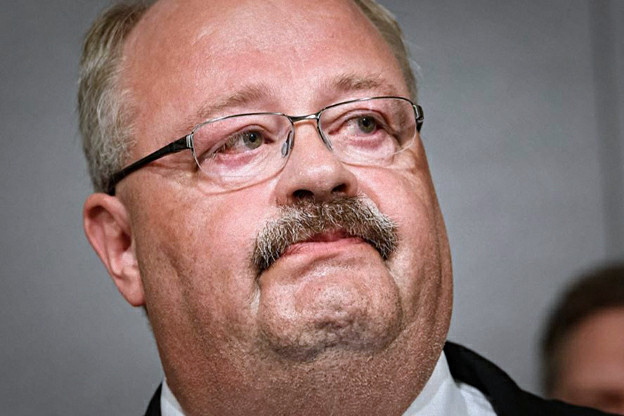

Greg Davids is full of doo doo
Rep. Davids offered Strib reporter J.P. Coolican a triumphant interview about the tax bill passed by the legislature this session. Davids is the House tax chair. There is a lot we could quarrel with, but I’ll select a single item for now:
Davids cited the estate tax: “People earn their money, they die, and we tax them again. That’s not Minnesota nice.”
This is bullshit hyperbole. It’s just too bad Mr. Coolican doesn’t understand that, or at least didn’t press Davids on it.
Most sizable estates are not made of up primarily of after-tax assets. (In other words, assets that have already been taxed, such as salaries.) They are made up of appreciated capital assets for which the gains have not been recognized. A simple example:
A person buys an capital asset for $1 and sells it for $10 dollars shortly before death. The $9 is taxable income at the capital gains rate. Let’s change the scenario slightly.
The person buys the same asset for $1 and holds it until death, when it s worth $10. Because the asset was not sold during the decedent’s lifetime, there is no income tax on the gain.
There will never be an income tax on the $9 in gain in the second situation. That is because the asset passes into the hands of the heirs with a stepped-up “basis” (that is, the value from which gain or loss is calculated, typically the purchase price) equal to the fair market value of the asset at the time of the decedent’s death.
Davids is manifestly incorrect — some might even say lying — when he contends that an estate tax is double taxation, because it almost never is. There is, however, another word for allowing unrealized capital gains to pass from one generation to the next, and the next: feudalism.
If we want to get rid of the estate tax but equalize the treatment of the heirs of the decedent who didn’t sell the appreciated asset and the heirs of the decedent who did, we could treat the event of death as a sale (or “disposition” in tax lingo) and tax the gain to the decedent’s final income tax return. Or, we could give the heirs a “carryover basis” in the appreciated asset. In our example, that would mean that the heirs would, when they finally sold the asset, calculate their gain based on the original $1 paid for that asset, not the fair market value of it when it passed into their hands.
The present scenario is advantageous to heirs. You have to have a fairly large estate to even have an estate tax levy. An income tax levied at death would be larger in most cases. And, if heirs received a carry-over basis, they would have to prove that basis when they sold, or it would be considered to be zero, meaning the entire sale price would be capital gain.
Just as an example of this, most real estate deeds state that the sale price was “one dollar and other good and valuable consideration.” If you received a parcel of land as an heir, and you couldn’t prove what your ancestor paid for it, you’d have to pay income tax on the entire sale price. Currently, on disposition, you only pay capital gains tax on the appreciation after the asset passed into your hands. This is actually a good deal for heirs.
I think it immensely sad that sloganeering remarks like Rep. Davids’ could pass for policy discussion and not be challenged.
Thanks for your feedback. If we like what you have to say, it may appear in a future post of reader reactions.

